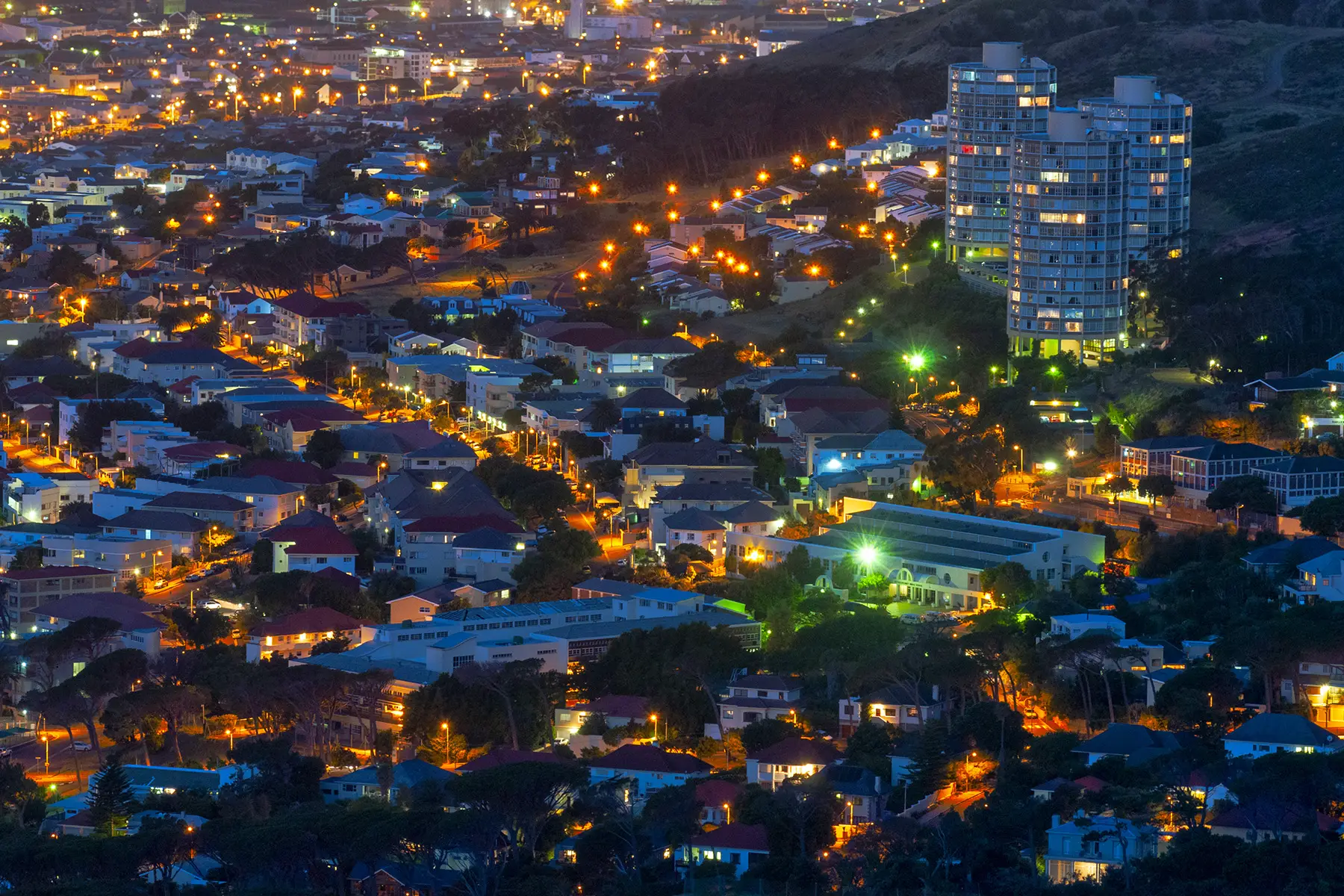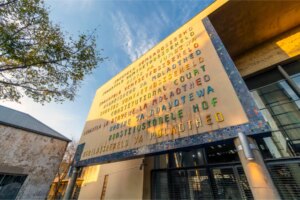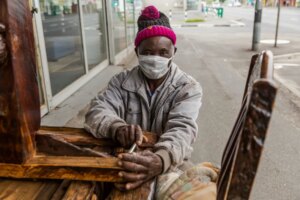South Africa is a melting pot of cultures and languages, and the political landscape is just as broad and diverse as the country and its population. Similar to countries such as Germany, Japan, and the United States, South Africa is a constitutional democracy. Furthermore, it has a three-tier system of government – national, provincial, and local.
If you have recently moved to any of the country’s nine provinces, or are about to, this guide provides an overview of the South African government, the country’s politics, the main parties, and activists in one of the most unequal societies in the world. It includes the following information:
- A quick history of South African democracy
- The three branches of the South African government
- The South African President: who is currently in power?
- The South African legislature
- The South African judicial system
- Chapter 9 institutions: protecting the public
- Voting and the electoral system in South Africa
- The main political parties in South Africa
- Apartheid, colonialism, slavery, and war: a legacy of loss and triumph
- State of the South African economy: beware of the Gini in the bottle
- The current political landscape in South Africa
- Useful resources
Ground News
Get every side of the story with Ground News, the biggest source for breaking news around the world. This news aggregator lets you compare reporting on the same stories. Use data-driven media bias ratings to uncover political leanings and get the full picture. Stay informed on stories that matter with Ground News.
A quick history of South African democracy
The democratic system in South Africa is relatively new and stems from the country’s complex history of colonialism, apartheid, and a long struggle for freedom.
Although democracy in South Africa remains flawed, it was hard won. Following centuries of oppression through colonialism and apartheid, the South African people’s struggle for democratic freedom finally culminated in majority rule in 1994.

The first post-apartheid election took place on 27 April of that year. Nelson Mandela was sworn in as President of the first democratically elected South African government on 10 May 1994, after spending 27 years as a political prisoner. The Constitutional Court approved South Africa’s Constitution – or supreme law of the land – on 4 December 1996. It took effect on 4 February 1997.
The three branches of the South African government
There are three branches of the South African government, each with a different capital city:
- the executive (the president and cabinet), based in Pretoria
- the legislature (parliament), based in Cape Town
- an independent judiciary (the courts), based in Bloemfontein
The executive and legislative branches of the state legislate and execute laws and policies for the whole country. The South African government is led by the executive branch, the President, and the cabinet.
The South African President: who is currently in power?
The President of South Africa is currently Cyril Matamela Ramaphosa, the leader of the African National Congress (ANC) party. A former trade unionist and General-Secretary of the ANC, Ramaphosa was an author of South Africa’s Constitution, after his election as chairman of the Constitutional Assembly in 1994. Prior to that, he had helped negotiate South Africa’s transition from minority rule to democracy at the Convention for a Democratic South Africa (CODESA).
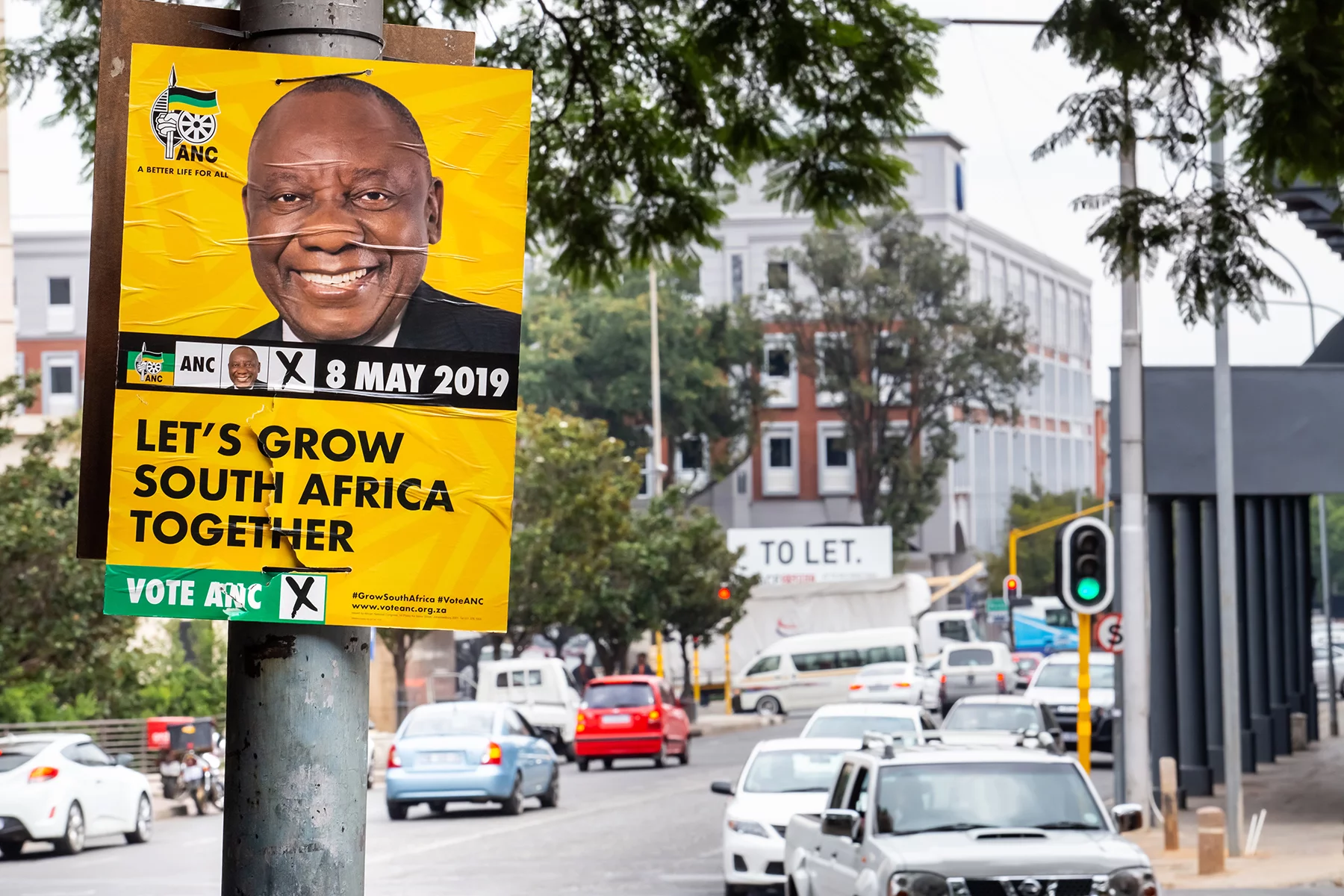
Before becoming president, Ramaphosa had left political life in 1996 and gone into business for a number of years. Forbes pegs his wealth at US$450 million. In 2012, he was embroiled in controversy when the Marikana Massacre unfolded: police gunned down 34 striking Lonmin miners, days after two policemen and two security guards were killed in the violent strike. However, as a director of the mine, he had urged police to stabilize the situation. Therefore, the Marikana Commission of Inquiry found that his conduct was not improper.
Ramaphosa returned to politics that same year and was elected Deputy President of the ANC. In May 2014, his predecessor, Jacob Zuma, appointed him Deputy President of South Africa. In December 2017, he was elected President of the ANC at its elective conference. He was sworn in as President of South Africa on 15 February 2018, following the resignation of Zuma, who had been told to step down by the ANC. The following year, the ANC won the national elections and Ramaphosa was once again sworn in as President.
In 2024, he was re-elected as President after the national elections. Although the ANC failed to gain a majority in the vote, he was supported by the Democratic Alliance and other parties.
The South African legislature
The Parliament of South Africa is led by the Speaker and consists of two houses:
- the National Assembly
- the National Council of Provinces (NCOP)
Their members (MPs) are selected by parties that have won seats under the proportional representation (PR) voting system.
In Parliament, the National Assembly is responsible for choosing the President. The President must be an MP responsible for passing laws and conducting oversight of the executive. The Assembly can consist of between 350 and 400 members.
The main role of the NCOP, meanwhile, is to champion provincial interests in the national parliament. It consists of 10 delegates from each province, as well as 10 representatives of local government. However, they cannot vote.
Provincial governments in South Africa
In South Africa, the provincial governments can only make and carry out laws and policies that affect their provinces. However, they must also work within the framework of national government policies and the Constitution.
Each province has:
- a Legislature, which consists of between 30 and 80 members, led by a Speaker
- an executive, which is led by a Premier and Members of the Executive Council (MECs)
Municipalities in South Africa
There are three kinds of municipalities in South Africa: metropolitan, district, and local. Some of their representatives can participate in legislative proceedings with the NCOP. They all have councils, a mayor, and administrators who are responsible for providing services to your home; this includes utilities, such as water, electricity, and sanitation services. These municipalities collect revenue through rates, taxes, and service charges.
The South African government recognizes and cooperates with traditional leaders, such as kings, queens, and chiefs, as well as traditional councils throughout the provinces who are subject to the Constitution. In recent years, the politics of patronage has become deeply ingrained. There have been widespread allegations of corruption and fraud at state organs.
South Africa has made progress in improving the well-being of its citizens since it moved to democracy in the 1990s. The post-apartheid government has also joined regional and continental bodies such as the Southern African Development Community (SADC) and the African Union (AU). These strive to eradicate poverty and promote unity and solidarity among the African States.
However, this progress has slowly reversed over the last decade. For instance, the state’s capacity has steadily eroded and reports of irregular expenditure have risen. Meanwhile, according to the latest collected data, the poverty rate rose to nearly 56% in 2015.
The South African judicial system
There are five independent courts within South Africa’s judicial system. The Constitutional Court is the apex court, its jurisdiction restricted to constitutional matters. One of its duties is to “decide that parliament or the president has failed to fulfill a constitutional obligation”. This happened when the Constitutional Court sentenced former president Jacob Zuma to prison for contempt of court.
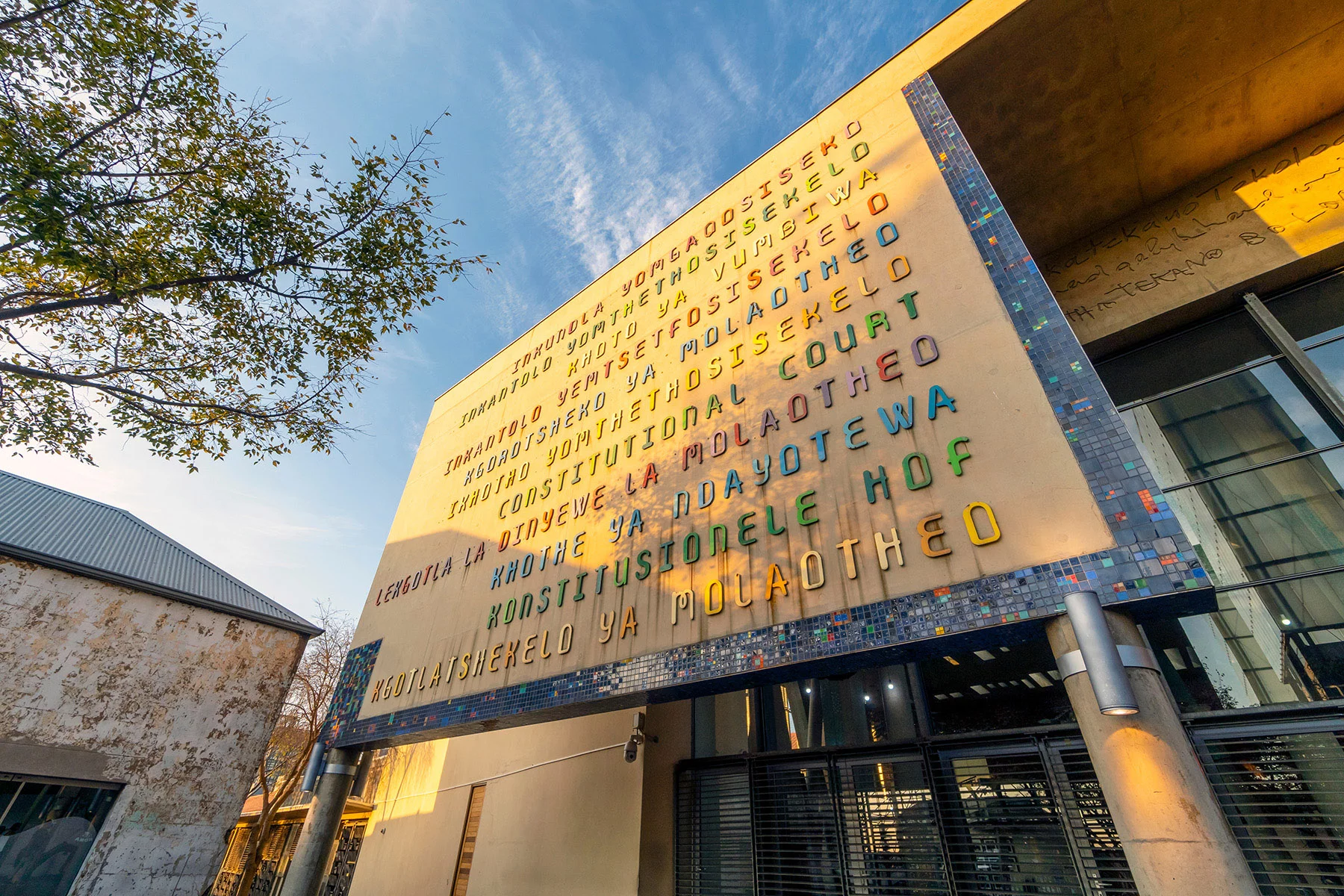
The Chief Justice presides over the Constitutional Court, along with 10 fellow judges. They also exercise responsibility for the superior courts; namely the Supreme Court of Appeal and the High Courts. The Supreme Court only deals with cases sent to it from the 13 High Courts from various jurisdictions throughout the country. They hear serious cases that the lower courts, such as the various Magistrates’ Courts, cannot. Notably, their penal jurisdiction is not limited, and they can hand down life sentences.
Chapter 9 institutions: protecting the public
The Constitution of South Africa outlines a Bill of Rights that people in the country are entitled to. And to champion these rights, Chapter 9 of the Constitution states that a number of impartial and independent institutions need to be provided. These exist to support democracy and guard against abuses. They include the following:
- The Public Protector
- The South African Human Rights Commission
- The Commission for the Promotion and Protection of the Rights of Cultural, Religious and Linguistic Communities
- The Commission for Gender Equality
- The Auditor-General
- The Electoral Commission
- The Independent Authority to regulate Broadcasting
The National Assembly is responsible for recommending commissioners to each commission, and the President then appoints them. Importantly, this process is transparent and open to the public. The commissions have extensive powers and can be consulted when respective rights have been violated. They must, however, report both their activities and achievements to the National Assembly each year.
Voting and the electoral system in South Africa
National and provincial elections in South Africa
The Independent Electoral Commission (IEC) runs South Africa’s elections. National and provincial elections take place every five years. The latest took place in 2024, and the next will be in 2029. The nearly 28 million registered voters can cast their ballots for a political party – not individuals – in a proportional representation (PR) voting system.
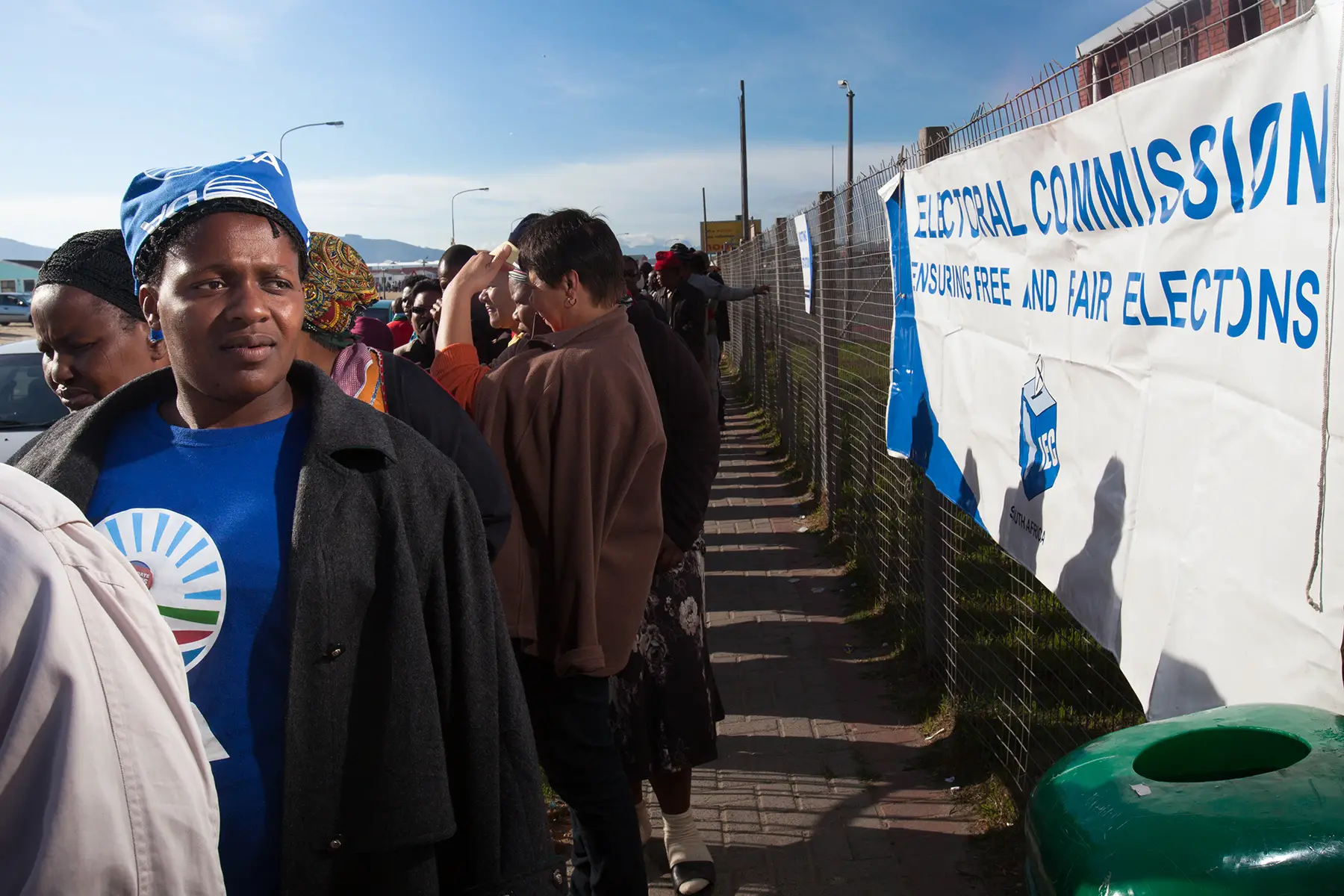
This is where political parties get a share of seats in Parliament in direct proportion to the number of votes won. Each party then selects members to fill these seats.
South African municipal elections
Municipal elections also take place every five years in South Africa. These differ from national and provincial elections as they use a mixed or hybrid system; making use of both the ward system and the proportional representation system. The next municipal elections will take place in 2026.
Can I vote in a South African election?
If you are wondering if you are eligible to vote in elections, the short answer is… probably not. You can only vote in general elections if you are a South African citizen. Even if you become a permanent resident, you cannot cast a ballot until you become a citizen of the country. You can only register to vote, then cast a ballot on polling days, if you hold a passport and identity document issued by the South African government’s Department of Home Affairs.
Since 1994, South Africa’s elections haven’t been considered anything other than free, fair, and democratic. Although voter turnout has declined, the African Union (AU) has attributed this to “disillusionment with politics due to the prevailing circumstances, including high… youth unemployment, weak economic performance of the state, poor service delivery, corruption and grievances over land redistribution.”
The main political parties in South Africa
As no party achieved a majority of votes in the 2024 national election, South Africa is currently led by a coalition of the African National Congress (ANC), the Democratic Alliance (DA), the Inkatha Freedom Party (IFP), the Patriotic Alliance (PA), and several smaller parties.
The African National Congress (ANC)
The African National Congress (ANC) has been in power since Nelson Mandela won the first free and fair elections in 1994. Its majority, however, reduced each election since 2004, and in 2024, it lost its majority in the general election. In this poll, the ANC won 40% of the vote, giving the party 159 seats in the National Assembly; a decline from 230 seats in 2019.
Ideologically, the party is economically and socially progressive, having championed a non-racist, non-sexist, and non-homophobic agenda. The ANC also favors a welfare state and has extended social safety nets through a range of grants.
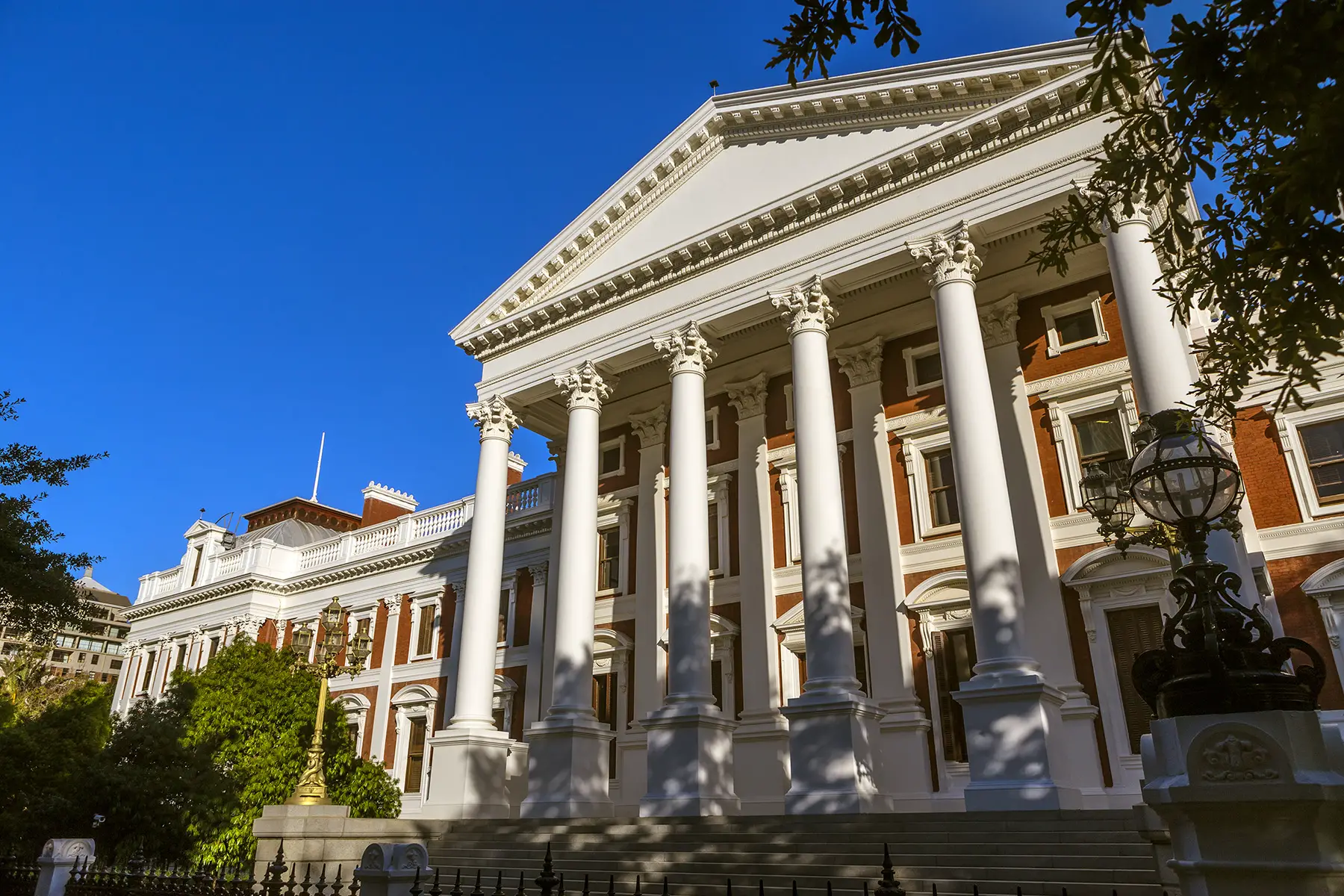
Economically, its successive administrations have favored a mixed economy, with public ownership of utilities and other entities in critical sectors. However, these state-owned enterprises have poor reputations and are now the target of reforms following widespread mismanagement.
More recently, there have been disputes between factions within the party, with some championing more radical economic plans and a total rejection of neoliberal economic policy.
Democratic Alliance (DA)
The main opposition, Democratic Alliance (DA), won 22% of the vote, giving the party 87 seats in the National Assembly. The DA, which originated from the Progressive Party that formed in 1959, champions free market and liberal democratic principles. Its sister party in the UK is the Liberal Democrats.
uMkhonto weSizwe (Spear of the Nation – MK)
The third-largest party in Parliament is uMkhonto weSizwe, or MK, whose name is Zulu for ‘Spear of the Nation.’ The party was founded in 2023 after splitting from the ANC. Its leader is former President Jacob Zuma, who was not eligible to run for election in 2024 due to his previous prison sentence.
MK is a populist party supporting nationalization and land redistribution while having several socially conservative policies such as opposing same-sex marriage. It won nearly 15% of the vote in 2024, giving it a total of 58 seats. Its vote is mostly concentrated in the KwaZulu-Natal province.
The Economic Freedom Fighters (EFF)
The fourth-largest party in Parliament is the Economic Freedom Fighters (EFF), established in 2016 by former ANC Youth League leader Julius Malema. The EFF won just under 10% of the vote in 2024 and has 39 seats in Parliament. The party describes itself as “a radical and militant economic emancipation movement… pursuing the struggle of economic emancipation.”
The Inkatha Freedom Party (IFP)
The Inkatha Freedom Party (IFP) is the fifth-largest party in Parliament. It won just under 4% of the vote and 14 seats in the last election. This largely regional party has a core of Zulu-speaking supporters in KwaZulu-Natal. It was led from 1975–2019 by Mangosuthu Buthelezi who led an apartheid-era Bantustan. Velenkosini Fiki Hlabisa has been its leader since 2019.
KwaZulu-Natal has a history of political violence, and some 20,000 people are thought to have died between 1980 and 2000, with the IFP an active participant. The party received support from the apartheid state and held political power in the province in the immediate post-apartheid period. That said, support for the party has waned. Its recent manifestos have included a focus on social justice.
Patriotic Alliance
Patriotic Alliance is the sixth-largest party in Parliament, winning just over 2% of the vote and 9 parliamentary seats in 2024. It was formed in 2013 by Gayton McKenzie and Kenny Kunene. Although it positions itself as a centrist party which aims to fight corruption and promote the rights of marginalized communities, many consider it right-wing populist.
Vryheidsfront Plus (VF Plus)
The Freedom Front Plus (Vryheidsfront Plus/VF Plus) is the seventh-largest party in Parliament. It won just over 1% of the vote in 2024 and has representatives in the parliamentary coalition. VF Plus is a minority rights party formed just a month before the first democratic election in 1994. The party has a largely Afrikaans-speaking supporter base. It is against policies such as affirmative action and Black Economic Empowerment, which are meant to address the socioeconomic inequities of apartheid.
Apartheid, colonialism, slavery, and war: a legacy of loss and triumph
Apartheid was a brutal system of oppression that saw the white minority government and its security apparatus strip the majority Black population of rights. This included taking away their right to vote, as well as their homes and land, and limiting their educational and career opportunities.
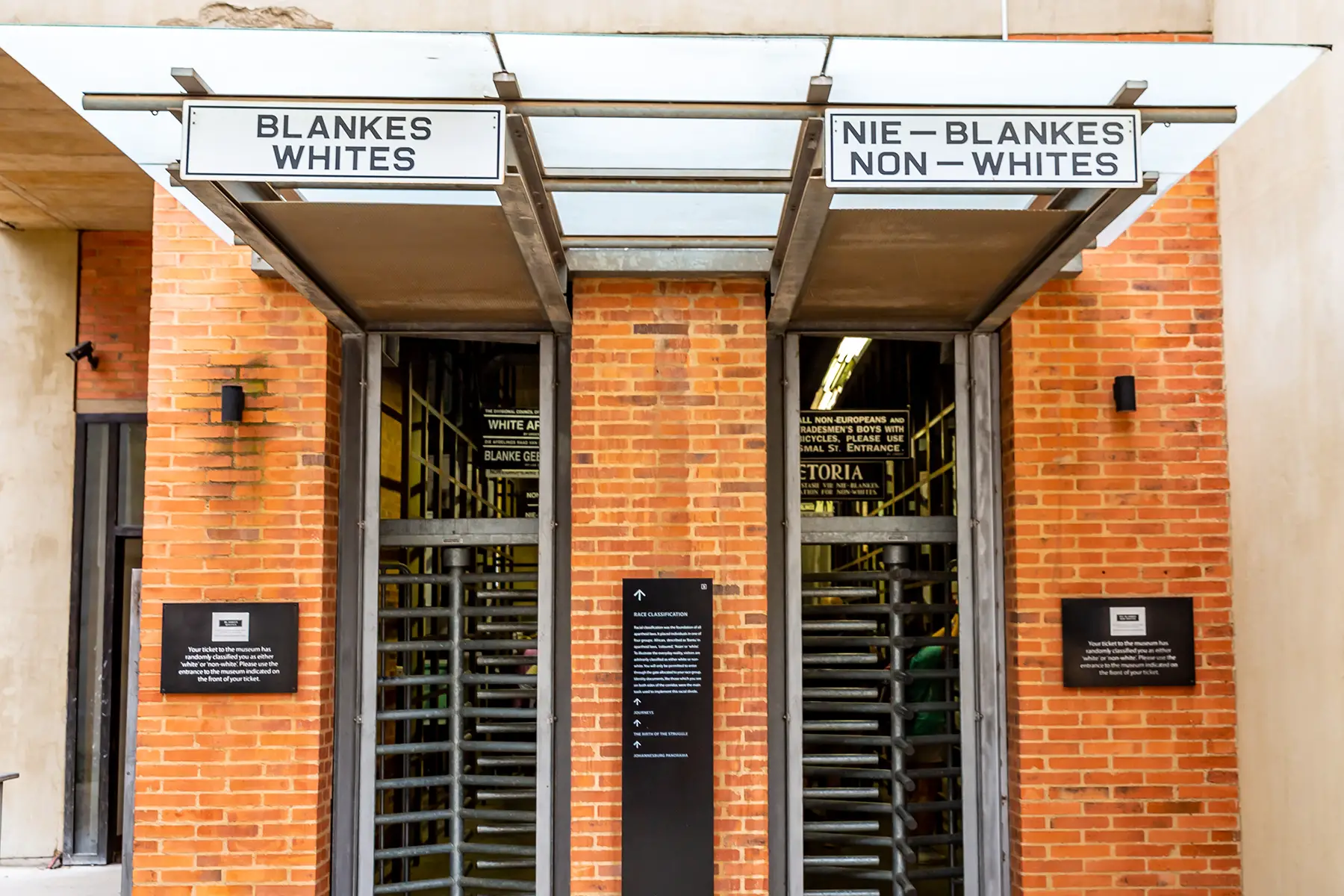
This was done through the enactment, and violent enforcement, of a series of laws that were implemented over a period of 42 years, starting from 1948. In fact, apartheid was designated a crime against humanity by the UN General Assembly in 1966. Tragically, there were massacres and gross human rights violations both inside and outside the borders of South Africa.
An unequal country
Apartheid ended in 1990, after years of internal strife, international pressure and boycotts, and finally, negotiations.
However, although South Africa has been a democracy since 1994, the legacy of apartheid lives on through deep inequality – skewed along racial lines – that persists to this day. The World Bank describes South Africa as one of the most unequal countries in the world. And the South African government has failed to reverse this. Colonialism, slavery, and war have all fed the beast of inequality for centuries, and affected the political landscape to this day.
State of the South African economy: beware of the Gini in the bottle
The World Bank classifies South Africa as an upper middle income country, similar to Türkiye, Russia, Mexico, and Brazil. Its gross domestic product (GDP) is pegged at US$378 billion. South Africa’s abundant natural resources and good climate have allowed the mining and agriculture sectors to lead the economy for centuries, up until the 1990s. Now, the tertiary sectors of finance and trade contribute the largest share of GDP.
A dual economy
The World Bank refers to South Africa as “a dual economy with one of the highest, persistent inequality rates in the world with a consumption expenditure Gini coefficient of 0.67 in 2018.” This high inequality is fed by the apartheid’s legacy of exclusion. In addition, South Africa’s economic growth does not generate enough jobs, and there are too few policies focusing on rebalancing wealth inequality. The country’s social mobility is low. The result is that inequalities are passed down from generation to generation. Poverty is widespread, and Statistics South Africa reported in 2015 that one out of every two South Africans (55%) was poor.
This dual economy is reflected in the use of state/public versus private sector services. Middle-class – and some working-class – South Africans have opted out of state institutions and enrolled with private companies providing health, education, and security services. This is also reflected in the level of crime in the country.
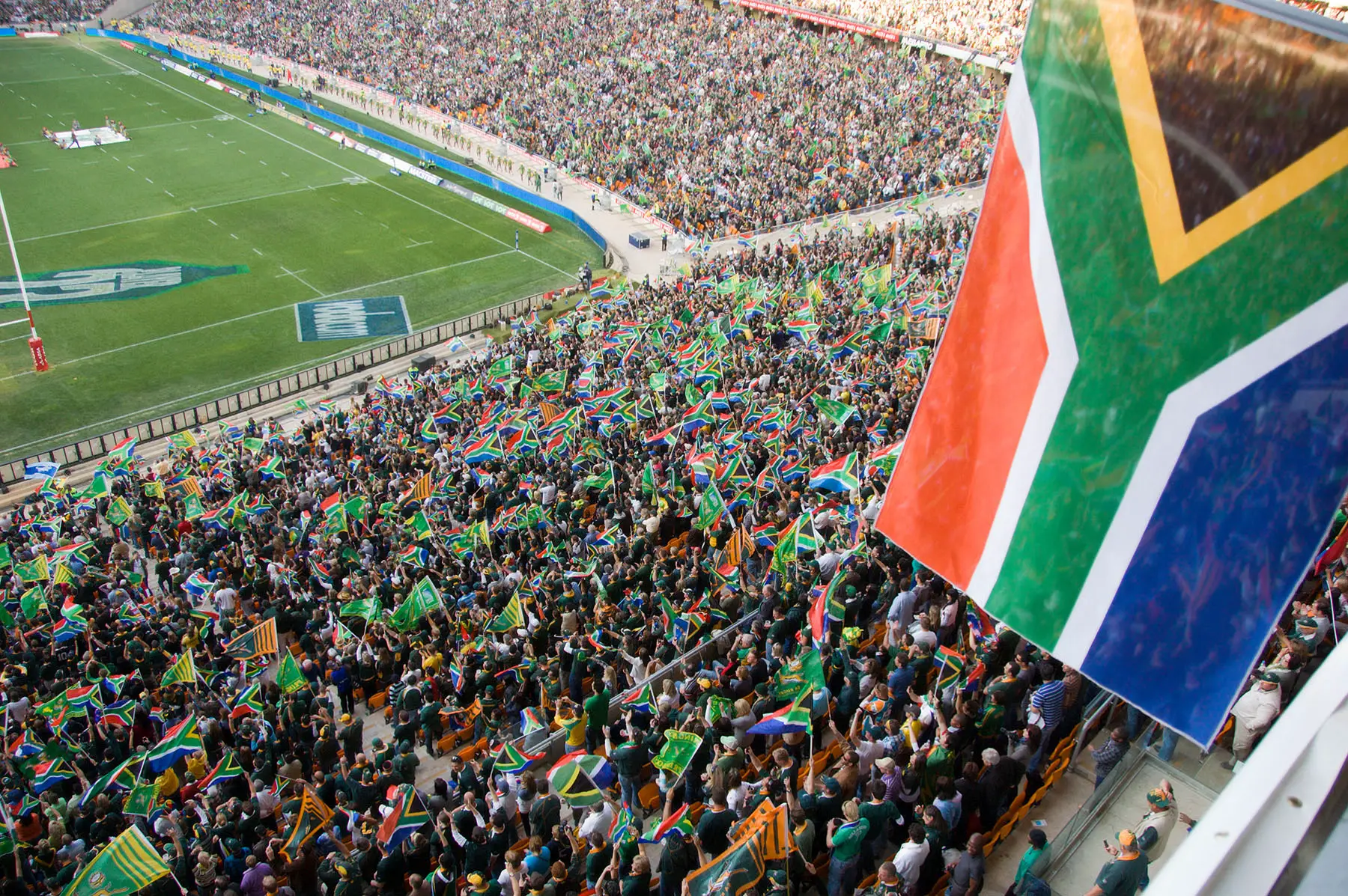
That said, this duality also means that South Africa is the birthplace of exceptional people and companies. For instance, a tiny Johannesburg peri-peri chicken brand is now a global phenomenon! And, as the Springboks repeatedly show, when South Africa really wants to, it can beat the world and astound it with a peaceful transition from oppression to democracy.
Facts about South Africa’s economy
Here are some facts about the South African economy that might just surprise you:
- Key economic sectors include manufacturing, wholesale and retail trade, financial services, transport, mining, agriculture and tourism.
- COVID-19 hammered South Africa’s already fragile economy, resulting in the deepest recession since the end of apartheid.
- South Africa’s GDP growth slowed in 2022 and 2023 for numerous reasons, and the fiscal deficit remains at 4.6% of GDP.
- Poverty is estimated at 62.7% (2023)
- South Africa now has an unemployment rate of 32.4%.
- The youth unemployment rate is nearly 60%.
The current political landscape in South Africa
The imperfect efforts to deal with South Africa’s past has led to political tensions, especially in the midst of a worsening economy and increasing social unrest. The persistent inequality, the ongoing debate over Black Economic Empowerment, and the various other forms of redress, are subjects of constant contention in public discourse. This has not been helped by the increasing unhappiness with the lack of service delivery, mismanagement of state agencies and institutions, and high crime rates.
The Native Land Act
Land reform, which sought to address the unjust Native Land Act that dispossessed black South Africans of their ancestral land, is another area of tension. Expropriation without compensation has been adopted as policy by the ruling ANC. However, how and when to use such a tool is still a matter of debate and depends on which faction of the ruling party is in the ascent.
A history of corruption
The torrent of corruption allegations against leading state and ruling party figures in recent years has only exacerbated political and social tensions. The devastating impact of COVID-19, and new evidence of corruption in the government of South Africa’s response to the pandemic, has only added fuel to the flames.
Civil society and non-governmental organizations (NGOs) have repeatedly stood in the gap between the South African government’s lack of capacity and the needs of ordinary South Africans:
- Save South Africa organized the kind of mass action to force Zuma out of office that had not been seen since the apartheid era.
- The Council for the Advancement of the South African Constitution (CASAC) has repeatedly and successfully petitioned the highest court to hold those in power accountable and to safeguard democratic rights.
- Gift of the Givers foundation, meanwhile, has organized and delivered aid in a variety of emergencies, both locally and internationally. It is the largest disaster response NGO of African origin on the continent.
Useful resources
- Brand South Africa – useful resource for expats and potential investors
- Gov.za – South African government website, with information on departments, services and so on
- Statistics South Africa – provides a wealth of data on South Africa, including the population and GDP


